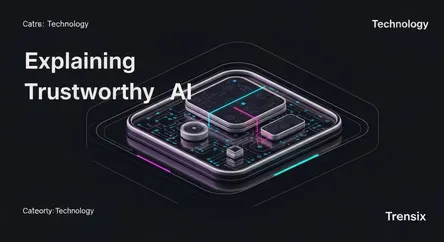Technology
Explaining Trustworthy AI

Discover Trustworthy AI, the framework for ensuring artificial intelligence is lawful, ethical, and robust. Learn why it's vital for our future.
What is it?
Trustworthy AI refers to artificial intelligence systems designed to be lawful, ethical, and technically robust. It's built on key principles including human agency, fairness, transparency, privacy, and accountability. This framework isn't just about creating AI that functions correctly, but ensuring it operates in a way that is safe, reliable, and respects fundamental human rights. The ultimate goal is to build AI that benefits individuals and society as a whole, fostering confidence and acceptance in these powerful technologies.
Why is it trending?
As AI systems become more integrated into high-stakes domains like healthcare, finance, and criminal justice, the potential for harm from flawed or biased models has become a major concern. High-profile incidents of AI making discriminatory decisions have fueled public skepticism and attracted regulatory scrutiny, such as the EU's AI Act. Consequently, businesses and developers now recognize that building trust is not just an ethical obligation but a crucial component for user adoption, brand reputation, and long-term viability in a competitive market.
How does it affect people?
Trustworthy AI directly impacts people by promoting fair and equitable outcomes in automated decisions, from loan applications to medical diagnoses. It champions transparency, giving individuals the right to understand and question why an AI system made a particular choice about them. By emphasizing privacy and security, it protects personal data from misuse. Essentially, it acts as a safeguard, working to ensure that the AI we interact with every day is designed to be helpful and just, rather than a source of hidden bias or risk.